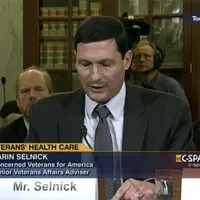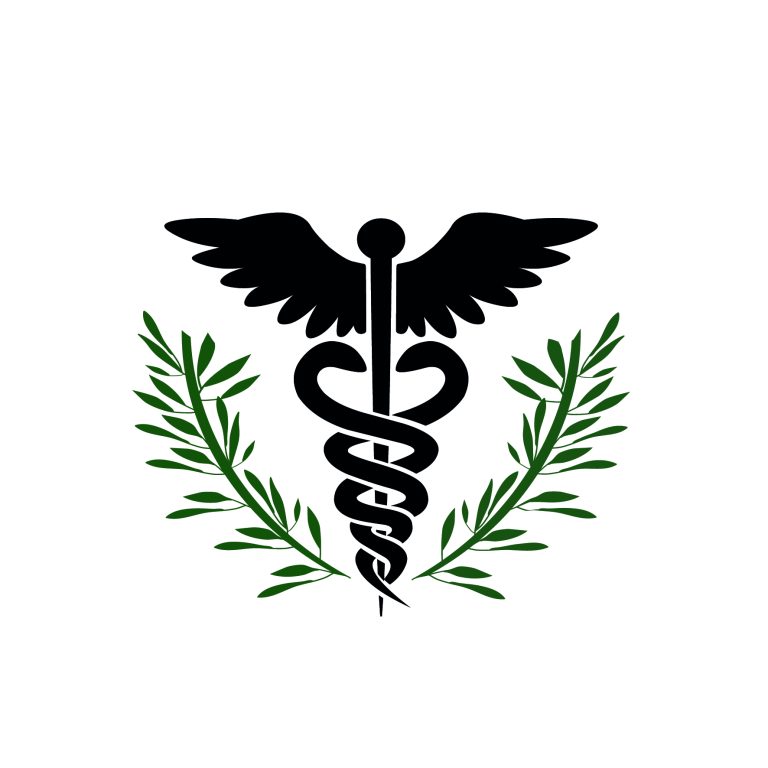Darin Selnick is at it again. Selnick, a VA privatizer with close ties to the Trump and Koch worlds, has recently helped launch a new anti-VA group called Veterans 4 American First Institute (V4AF). Selnick originally promoted his VA privatization campaign from the Koch brothers funded Concerned Veterans for America (CVA). He pursued the CVA agenda as a member of the VA Commission on Care, where he pushed for outsourcing of almost all VA care to the private sector. When the Commission’s Final Report recommended outsourcing more VA care, Selnick dissented from its findings because, he contended, it didn’t go far enough. Selnick continued his work under the Trump administration, which ensconced him in the White House and VA. There, he helped write and lobby for the VA MISSION Act of 2018, as well as other highly consequential privatization policies. (More recently, as VHPI uncovered, Selnick has floated half-truths around the VA’s treatment of female and minority vets.)
Now at V4AF, Selnick is unabashedly pushing his privatization agenda with the same underhanded tactics he utilized under previous administrations. Consider, for example, a blog post he recently penned for V4AF’s website. The post is in blatant service of Selnick’s agenda, which is to promote the enactment of the Guaranteeing Healthcare Access to Personnel Who Served Act (GHAPS Act). To push Congress to pass this misguided legislation – which would proliferate the number of veterans’ private care appointments – Selnick works to convince readers that veterans can’t currently get timely care in the private sector because the VA is dragging its heels in scheduling appointments through the Veterans Community Care Program (VCCP). (The VCCP is the network of private sector providers created by the VA MISSION Act. It has been set up and is administered by the private insurance companies TriWest and Optum.)
Below we list just a few of Selnick’s false claims:
Selnick
“VA has failed to meet the MISSION Act’s goal of timely appointments for care in the private sector. The law says it should take 20 to 28 days to get an appointment for community care.”
The Truth
Read the MISSION Act and you will find no requirements for how long it should take for the private sector to provide appointments. Indeed, VHPI has long advocated that wait and drive time metrics (identical to those imposed on the VA) should apply to the private sector. Congress and former VA Secretary Robert Wilkie (Selnick’s former boss) staunchly refused to do just that. Privatizers don’t want the same VA wait/drive time (nor quality) standards to be mandated for the private sector because they correctly fear that private sector providers will forego offering services rather than be held to any standards. VHPI believes it would be a huge, positive step forward if the private sector is held accountable for how long it takes for a referred veteran to be seen by someone in the VCCP network.
Selnick
Selnick refers to the 20/28-day wait-time standards and claims that, “VA data showed it was taking 41.9 days. So far, the new administration has done nothing new to reach that goal.”
The Truth
It is Third Party Administrators’ responsibility to address delays in the private sector, not the VA’s. After all, they are being paid billions in taxpayer dollars to set up and administer these networks.
Selnick
“We cannot forget the promise we made to veterans just a few short years ago when both parties agreed veterans had earned the right to choose.”
The Truth
The MISSION Act gave veterans the eligibility for non-VA care “if they and their doctor concluded that was in their medical best interest.” Selnick’s statement that the legislation provided veterans the “right to choose” is a self-serving falsehood.
Selnick concludes his misguided piece by stating that the “VA is also seeking a dramatic increase in its own funding, a sign VA is looking to capture the canceled Covid-19 appointments for itself.”
In making this statement, Selnick doubles down on his commitment to the outsourcing of VA care to the private sector no matter the quality of care delivered there or the threats to veterans’ health and well-being.
The truth is, as we have repeatedly written, is that the VA has offered some of the best Covid-19 care in the nation. To protect veteran patients and staff, VA canceled in-person appointments and elective procedures long before the private sector. Private sector providers, concerned with loss of revenue, also exposed patients to the virus far longer than advised. Unlike the private sector, VA furloughed no staff during the pandemic (which helped veterans, since a third of VA employees previously served). VA’s vaccine rollout was far more efficient and equitable than private sector debacle and there were no health disparities in patient deaths due to Covid-19 as there were in the private sector. As a recent studyconfirmed, VA care saves lives, and money. VA should therefore be doing exactly what Selnick is arguing against – encouraging vets to walk through department doors and get treatment. Veterans and their advocates should be reading the facts rather than using political fictions peddled by Selnick and his ilk to water down government and enrich corporations. They should, in other words, arm veterans with facts so they can make good choices – rather than unwise ones – about where to get care for their complex conditions.
If Selnick’s fallacies take hold, Congress may pass yet another detrimental VA bill: the GHAPS Act. “We are working with Congress to pass legislation that would turn the MISSION Act’s recommendation of timely private-sector care access into a permanent requirement,” Selnick writes in supporting the bill’s statutes. VHPI has thoroughly analyzed this problematic bill which has already passed the Senate Committee on Veterans Affairs. It now awaits deliberation in the House. Before moving forward on this legislation, lawmakers should spend time on a far more pressing agenda: to reenforce and support the VA as it prepares to welcome in and treat a new generation of battle-scarred veterans, including many dealing with serious moral injury following our flawed withdrawal from Afghanistan.




